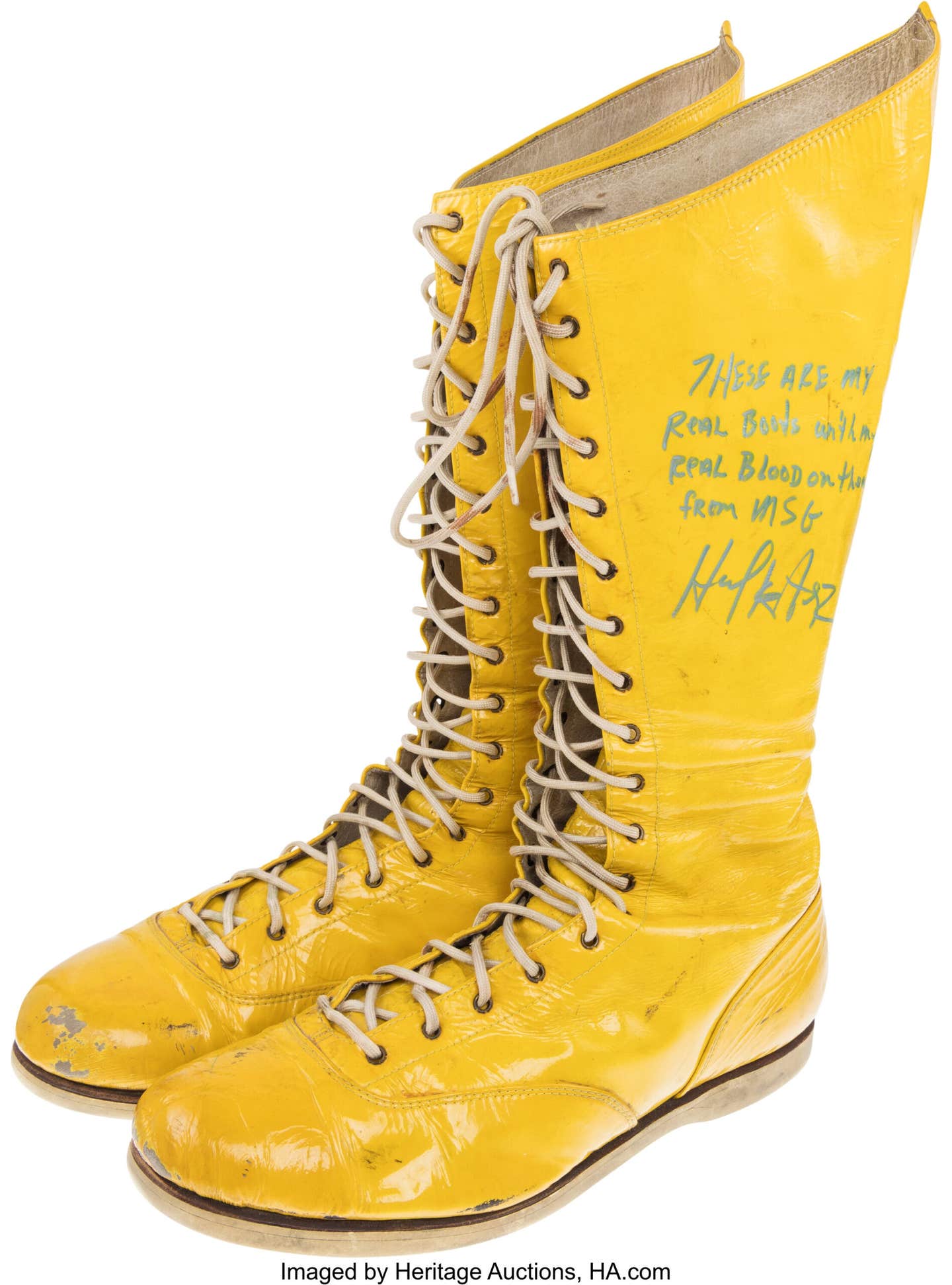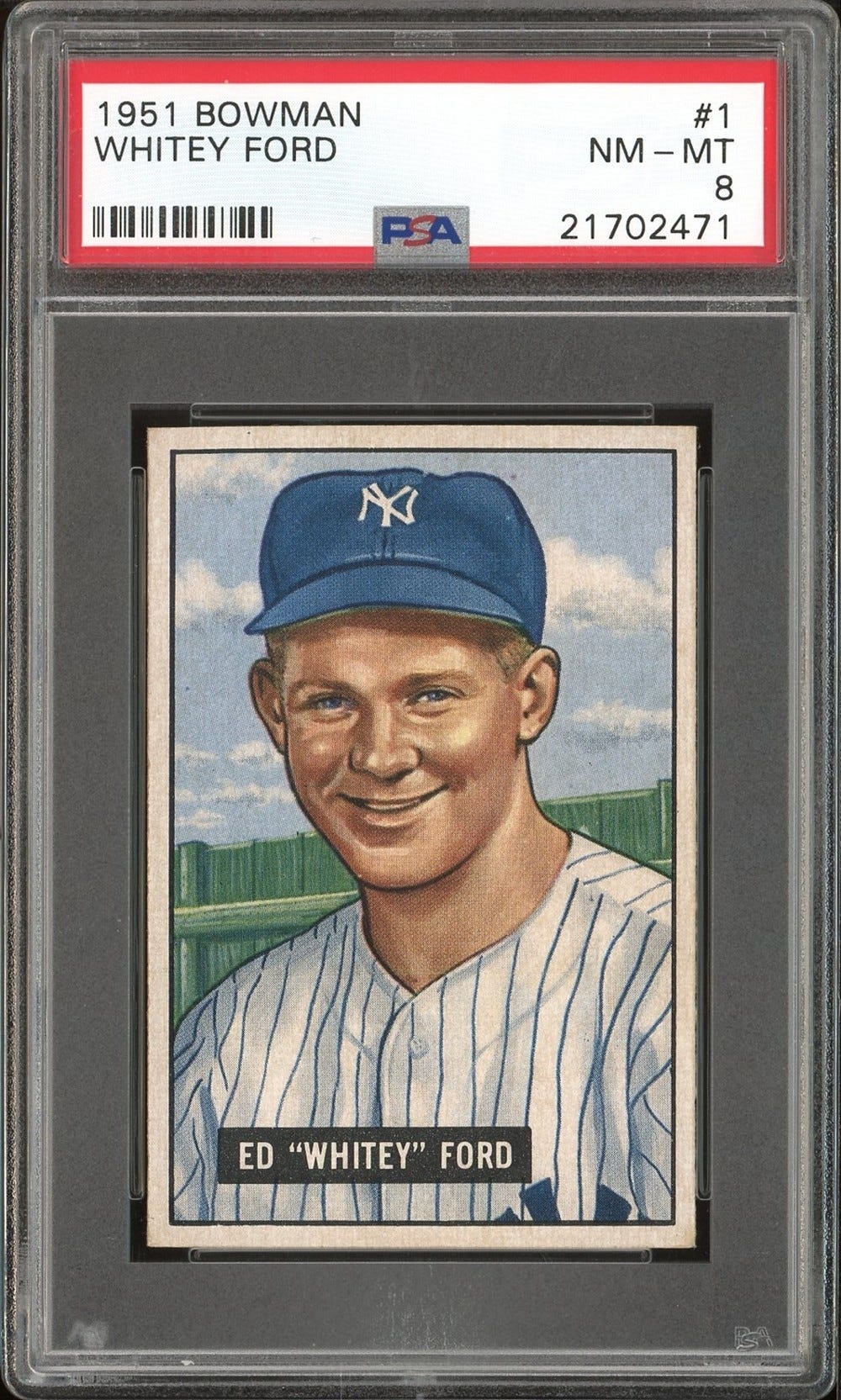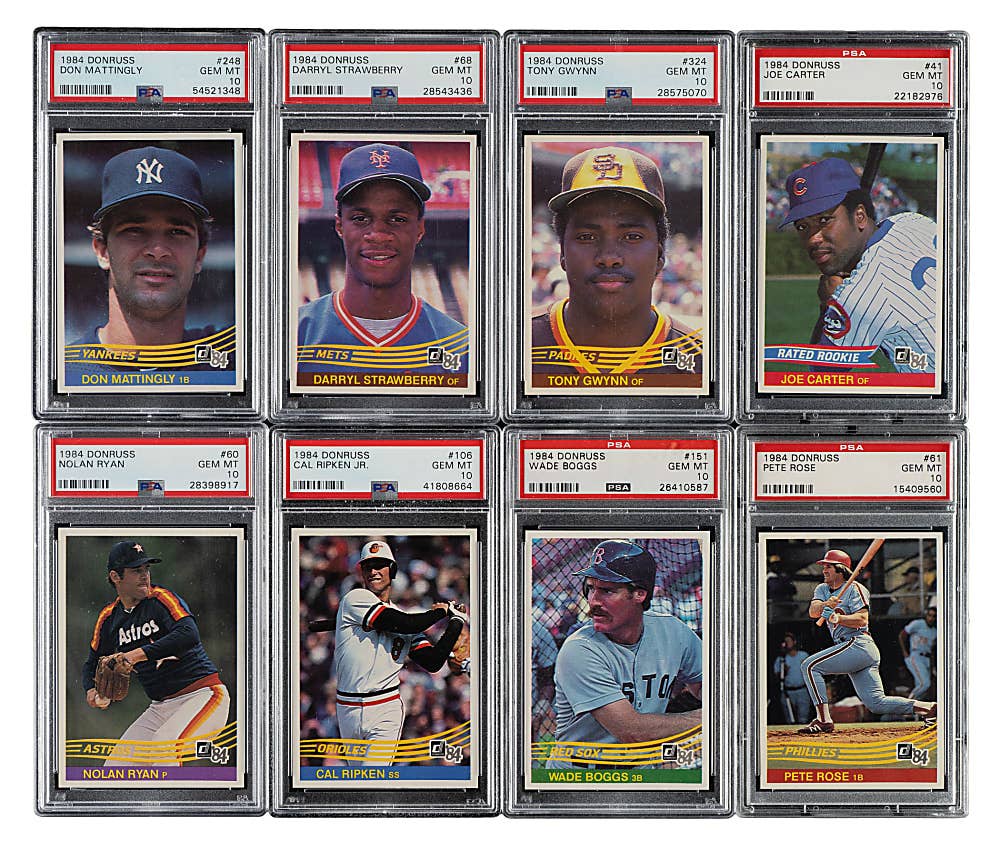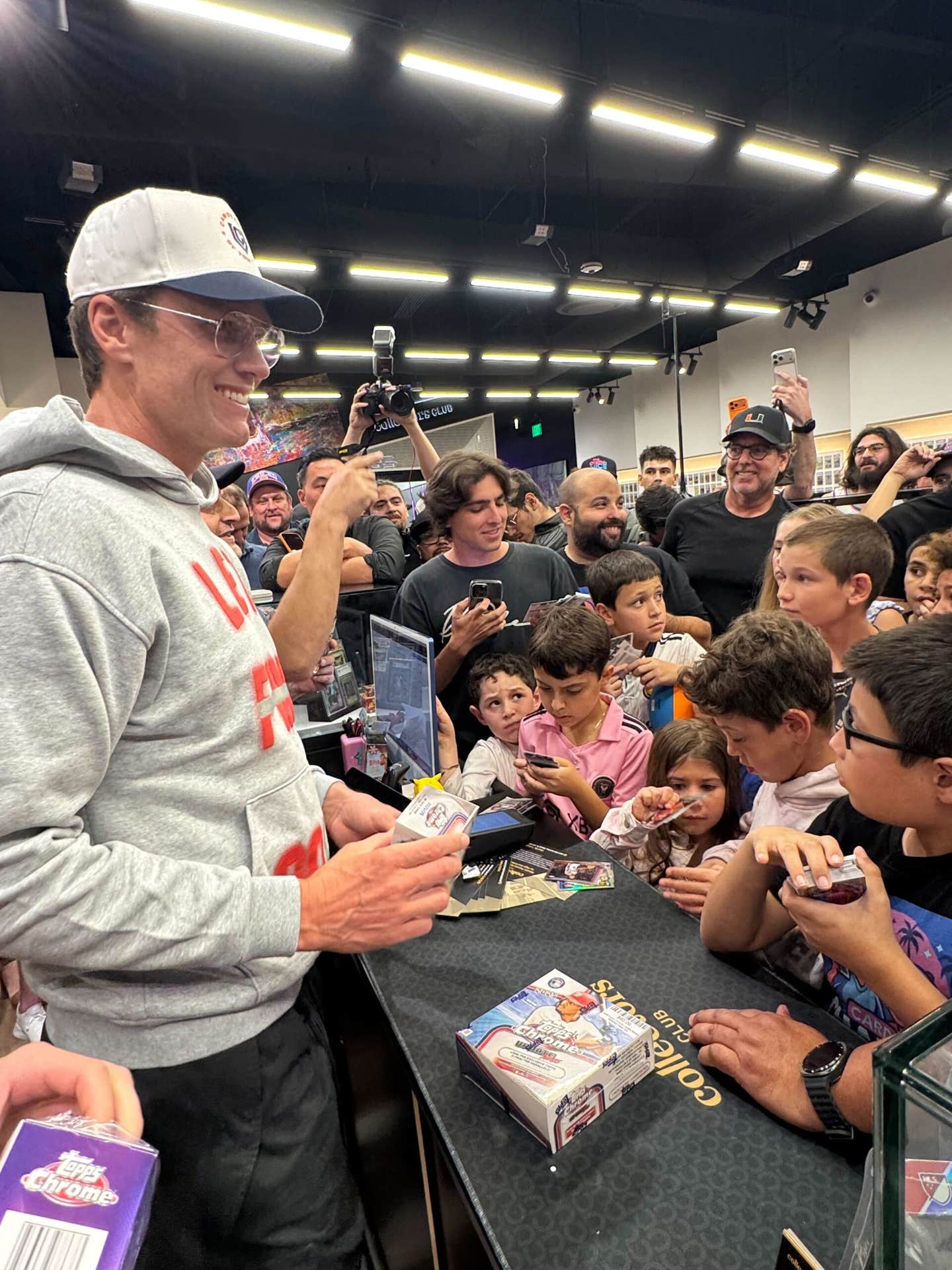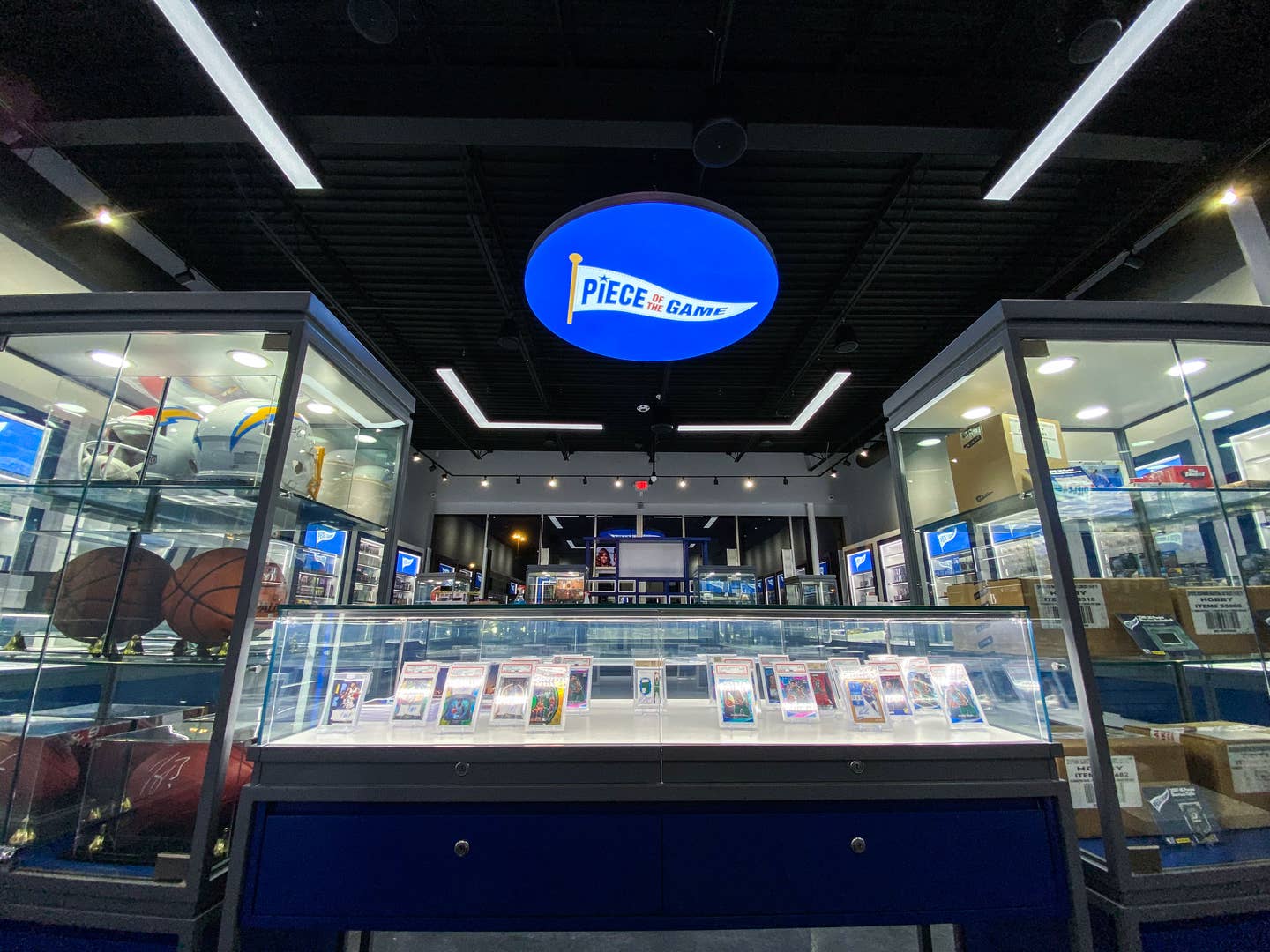
Sports Memorabilia Dealers
New Fanatics/Topps rules to have big impact on card shops, breakers
When Jonathan Stone opened Blue Breaks LLC hobby shop in Venice, Fla. in July 2022, he didn’t have a direct buying account to receive products from Topps.
Stone had to obtain all his Topps wax from card industry events such as the National Sports Collectors Convention, Industry Summit and MINT Collective.
“That hurt my customers because my prices were higher since I was paying two, three, four different middle men before getting the product in my store,” Stone said.
As a new business owner, Stone understood the importance of acquiring a Topps direct buying account to get products delivered to his door at a discounted rate.
In January of this year, Stone was granted a Topps direct buying account. Had he not had a relationship with Topps, new rules recently handed down recently for hobby shops would have impacted him greatly.
Topps — along with its parent company Fanatics — sent out an email on June 21 to all hobby shop owners — nearly 700 shops — with direct buying accounts. The message laid out 17 guidelines each shop has to follow in order to maintain its account with Topps.
Each shop owner has until July 18 to sign documents abiding by the new rules.
Some of the most notable guidelines include:
• No business-to-business or online sales, unless otherwise approved in writing by Topps. Products are for resale to direct consumers in brick-and-mortar shops.
• Shops may have box breaks, but they are for in-store only where customers are present. No selling products for online-only breaks.
• Shops are expected to maintain standard business hours and remain open a minimum of seven hours per day, six days per week or eight hours per day, five days per week, unless otherwise approved in writing by Topps.
• On a quarterly basis, shops have to submit to Topps complete and accurate reports regarding total sales of Topps products, sales by channel (in-store, online, convention, etc.), customer type (retail customer, dealer, convention, etc.) and social media metrics for all platforms (Facebook, Instagram, Twitter, Twitch, YouTube, TikTok, Whatnot, etc.).
“I don’t love the monopoly word, but Fanatics and Topps are absolutely exerting more and more control with every move they make, and it’s frankly exactly what they said they were going to do in the beginning,” Sports Card Investor founder Geoff Wilson told Sports Collectors Digest. “If you listen to the very first words Michael Rubin said after it was announced that Fanatics was taking over the licenses to begin with, he said, ‘We want to control it all.’ And step-by-step, they’re putting things in place to control it all.”
Implementing these measures will be beneficial for hobby shops, Topps says.
“Topps believes that hobby shops are a vital part of the industry and continues to support our shop partners to help contribute to the growth of local businesses,” Topps told SCD in a statement. “As we continue to develop deeper direct relationships with hobby shops, we are working alongside current partners to ensure that Topps products sold via the hobby direct program provide more product availability and variety on shelves, and ultimately enhance and improve the in-store experience for collectors.”
Shop owners around the country had a chance to digest the information set forth by Topps. According to a number of dealers contacted by SCD, some of the guidelines on the original document left more questions than answers.
In order to provide some clarity, Topps conducted two town hall-style calls covering a stock list of the main points regarding the guidelines. Brass from Topps offered some answers, but shop owners weren’t allowed to ask questions during the meeting.
David Prince, owner of Piece of the Game sports cards and memorabilia shop in Wappingers Falls, N.Y., took part in one of the town hall calls and quickly realized that the guidelines set forth weren’t as stringent as the wording suggested in the original emailed document.
“I’ll be very honest with you, like every other dealer probably in the country, we were very disappointed when we first got the new rules because they were just kind of emailed to everybody and there were a lot of legality and legal words in there,” Prince said. “When I sat down and really got a chance to digest it and think about each point in there, I figured in my mind that most likely it was lawyers who wrote that and it wasn’t going to be as harsh as it kind of explained in the document.”
One area discussed in Topps’ meeting was the no business-to-business sales of products. Topps clarified its statement, saying it doesn’t want shop owners selling to any third-party platforms such as Amazon, Walmart and eBay.
“They’re trying to keep people from selling it sideways,” said Rex Gotcher, who owns The Sports Card Shop in New Buffalo, Mich., as well as a new location in Valparaiso, Ind. “What I mean by that is they don’t want shops to be a mini-distributor to other businesses and stuff like that. It’s hard to control, because you don’t always know what somebody’s doing with it once they buy it, so that’s part of the challenge.”
Shop owners found out they are still allowed to sell Topps products on the popular website DealernetB2B.com. However, there is a 30-day hold for dealers to sell once a product is first released.
“They really want to drive traffic to the physical shops, and so that kind of makes sense to me,” Gotcher said. “Frankly, Upper Deck and Panini, too, have very similar policies. Upper Deck’s are even more stringent, as I remember, than Topps.”
Another guideline discussed at the town hall meeting related to shops breaking Topps wax.
“We listened to shop owners’ feedback regarding breaking and understand it is a way for them to reach new audiences/customers to help their business,” Topps told SCD. “So, that is one change we made that they can break product, but we just ask that they also ensure there is still product in-store for collectors — again, to provide a great shop experience for the customer.”
One guideline that impacts Stone the most is Topps dictating how many hours his store has to be open each week. Stone stated every demographic and market has a different customer base, but Topps didn’t seem to factor that in during its decision to set hours.
Running a shop in a much older community, Stone’s store is only open from noon to 5 p.m. on Sunday. He said there is no reason to be open earlier that day because people are at church in the morning and to be open past dinner time doesn’t make sense either because kids are getting ready for school the next day. If Stone doesn’t alter his Sunday hours, he will have to tack on an extra hour every other day that his shop is open.
Also, Topps telling shops they have to use a point of sale (POS) system to track purchases could be impactful. Some old-school shop owners still mark down their sales with paper and pencil and other non-modern methods.
“At the end of the day, some shops that do manual transactions with cash or just writing things down, they’re in a tough spot, because they’re going to have to report data, so that means a POS system of some sort,” Prince said. “But we’re in the 21st Century now, so I would think that would be required anyway.”
Added Stone: “I think there’s going to be some of the older stores that are going to disappear and struggle with this and I think at that time there will be room for some new stores.”
ADDING DIRECT ACCOUNTS
As of the end of June, there were 680 hobby shops that take part in Topps’ Hobby Direct program, with nearly 300 of those added in the previous 10 months.
Topps said it is continuing to add more shops to grow its program.
“I’ve heard that Topps in recent months has awarded more and more direct accounts to card shops and it is becoming less difficult to get a direct account with Topps than it used to be,” Wilson said. “So I think Topps’ strategy is, we would rather deal with more card shops and breakers directly and directly sell versus have less direct accounts but then so much stuff gets resold on the secondary market between dealers and breakers.”
Not being able to have business-to-business product sales could hurt breaking operations that don’t have direct buying accounts with Topps.
Some breaking companies that SCD contacted for this story wanted to remain anonymous. Breakers said in the past they had purchased Topps products from hobby shops because they didn’t have direct accounts with Topps. However, some breakers said they have recently obtained accounts.
“[This] will limit the Topps product I can buy from shops, but with the Fanatics account we were awarded in the fall, the change has a lot less impact than it would have maybe a year ago,” one breaking operation told SCD.
MIXED REACTIONS
Depending on how shop owners run their operations, Topps’ new guidelines can be very impactful or not at all.
“We signed up with the new program. I have no problem with it,” said Jim Muhs, who has been running Midwest Collectibles in Davenport, Iowa for over 40 years. “It’s the people that are box breakers and stuff like that I think that are going to have the issues.
“We’ve been doing this over 40 years, we just roll with the flow.”
When Stone first read the email from Topps, he was semi-shocked. However, he sort of expected some of the changes since he’d heard some chatter while attending some big industry events.
“I think Fanatics is doing no different than other high-end companies that are protecting their product,” Stone said. “Yes, at the end of the day I think there are definitely things in there that are protecting themselves more than us as stores. But I think in the long term it’s going to be much more beneficial for the stores that stick out and the stores that are in it for the long term themselves.”
The new guidelines show that Fanatics is trying to protect its brand, said Prince.
“In my mind, I envisioned that if I was selling Rolexs or BMWs or any high-end brand like a Louis Vuitton or something like that, would I be held to [standards]? And the answer is, ‘Yes,’” Prince said. “It would be even probably tighter, so I looked at that as a welcome thing. I looked at it as to put all stores on a playing field where they should be. There’s nothing wrong with that old store getting 10-case allocations, but just to go on and dump them on eBay or DealerNet or wherever it may be and not putting in any work into merchandising the product properly and presenting the brand really puts stores at an unfair advantage.
“In my mind, I’m thinking Fanatics spent a lot of money, they’re protecting their brand, they’re trying to control the channels that it goes out at — I understand all of that. By them doing that I think they put the brand in a better place, which in my mind should drive more traffic to my store and ultimately give us more sales.”
Although Wilson isn’t a hobby shop owner, he sees this move by Topps as a good thing for the hobby and the collector.
“I know there’s been a lot of backlash, but the truth of the matter is the distribution of wax has been uneven and inequitable for many years now,” Wilson said. “You’ve got distributors who have been hoarding wax and taking extra markup. You have certain card shops that have gotten far more allocation of wax than they reasonably need to service their local customer base and have profited heavily by selling their extra wax out the back door to other card shops and breakers who have not been fortunate enough to get a direct account for their own.
“I think what Topps is doing here is they’re really trying to cut out the middle man and they’re trying to assert more control. They want to deal directly with the shops who are going to be selling the wax and they want to give them sufficient supply to sell to their local audience. But they don’t want to give them extra supply that they can then turn around and basically act like a mini-distributor and make mark-up on selling it to other card shops and breakers.”
According to Gotcher, Fanatics has parted ways with two of the major distributors in the industry — GTS Distribution and Magazine-Exchange — but there are still Southern Hobby Distribution and Peachstate Hobby Distribution. Having these two companies delivering products to shop owners raises concerns for Gotcher.
“The issue is those shops that are only getting stuff from distributors are not going to be subject to these same regulations, if you will,” he said. “That presents a bit of an uneven playing field potentially, so I’m curious to see what they will do there or if they will just finally cut ties with all distributors and that won’t be an issue going forward.”



